EN

We met André Cepeda, photographer and printer, who opened the Blues Photography Studio at 416 R. da Alegria in June, alongside his wife, Sara Coelho. His professional career is divided into two distinct yet complementary universes: his personal work, profoundly introspective and poetic, and his activity in the studio.
Here, in addition to being a space dedicated to photographic creation and production, André Cepeda plays a crucial role as a printer, collaborating with various artists, galleries, and curators. Digitization, image editing, and the printing of art projects are some of the areas where this studio stands out, a true meeting point between technique and artistic sensitivity. "At heart, I am a printer, the most classical term in the tradition of photography that refers to someone who prints photos for others," he explains.
However, it is in his personal work that André Cepeda reveals his full complexity, in a continuous process of discovery where silence and time play a fundamental role. His photography is characterized by a constant search for places in cities where time seems to stand still. There is no rush in Cepeda's work. Each image results from careful observation, from a process that slowly reveals itself, without haste or external pressures.
"Photography is poetry"
"What interests me most in photography is poetry. It is the gaze, the way you relate to the world. The world you show, because photographers show a world, both interior and exterior; there are various interpretations, there are several layers," he states. He adds, "How do you react in a territory you don’t know? I can't photograph without truly connecting and understanding a territory. The relationship you have with a city is like with a person. A city has a personality, a smell, a sound. And it has a scale, and you must understand it."
His books, such as Ontem, Rien, and Depois, reflect this approach. The photographer rejects the concept of a "project" as something predefined, preferring to let himself be guided by the images he finds over time. "The greatest freedom an artist has is not knowing what they're doing. It’s not controlling and just letting go," Cepeda explains, describing his working process as organic and unplanned. The photographs accumulate, creating a visual narrative that only in the end reveals itself as a cohesive body of work. "The book is the most important object for a photographer, as it is through the sequence of images that the true narrative unfolds," he notes, adding that "there is always a narrative, no matter how abstract the work may be."
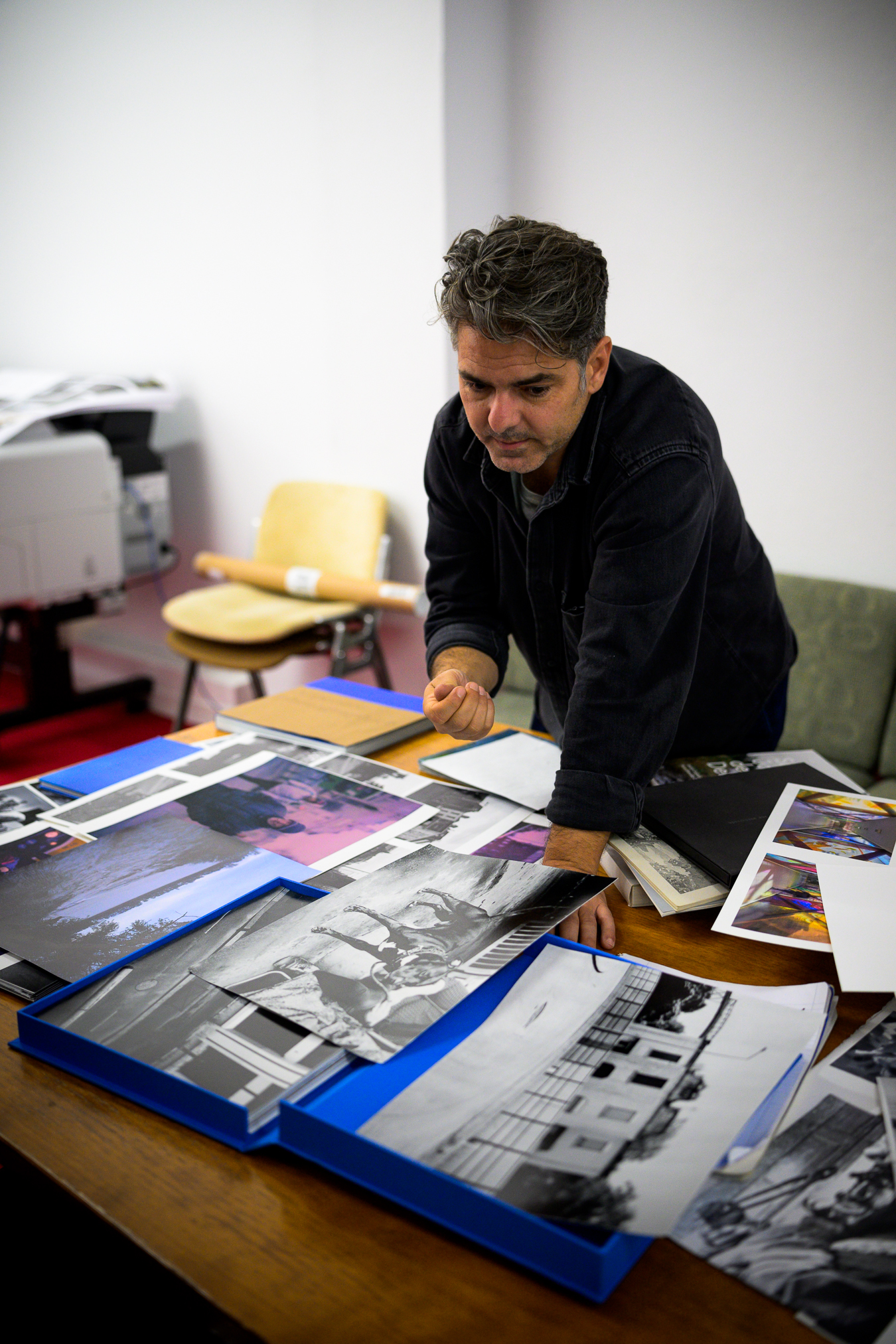
André Cepeda © Nuno Miguel Coelho
The "non-places," spaces that seem to exist on the fringes of time and society, have been a constant in André Cepeda’s work. These quiet, stripped-down places often mirror the human condition, reflecting a solitude and introspection that run through his entire oeuvre. "It is in silence that I find myself," the photographer states, reinforcing the idea that his work is as much about the places he photographs as it is about the act of observing and feeling the world around him.
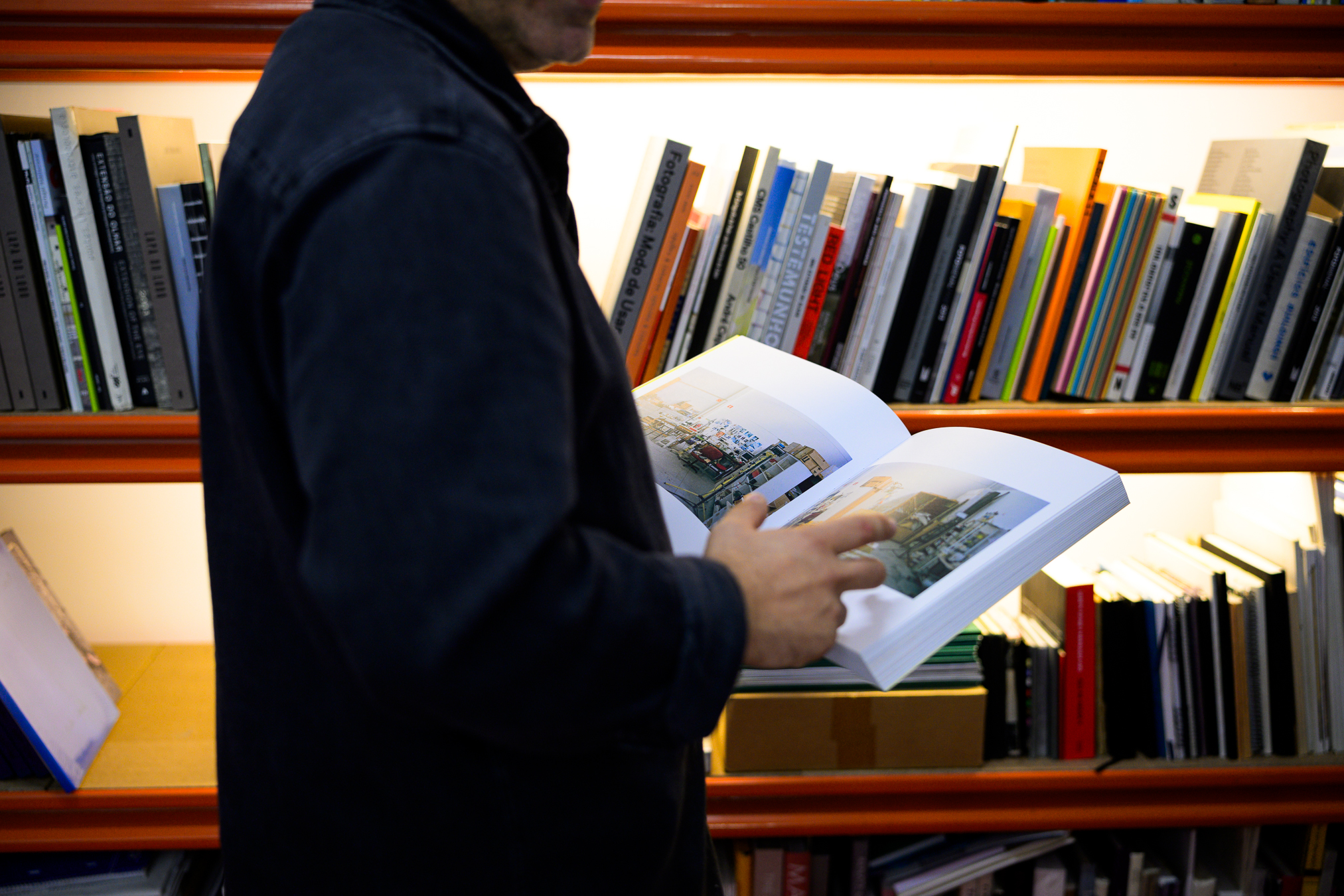
© Nuno Miguel Coelho
"There is a large part of research in my work, a very personal research that has to do with life, with the fact that I am alive and living in Porto at this moment. You wake up every day, look out the window, see the light, and feel it when you step outside. You look at the shadows, look at the people, you feel the streets, you feel what is happening. Not only am I sensitive to this and seek it out, but I also want to speak about what I see. The places I usually photograph have a certain silence. I often say it is in silence that I find myself. A photographer’s job is to walk the streets, to walk a lot in search of images," he asserts.
"As I shoot on film, the construction is all mental, it is inward; I don't see the photos immediately, I only develop them after one or two months, so I recall what I felt at the time. And it’s important to accept when the work isn’t good; sometimes you work for half a year, and the work isn’t good, it’s not worth it. You must keep going. That's why I say it’s magical because there comes a moment when tchhhhhh... and you find yourself," he concludes.
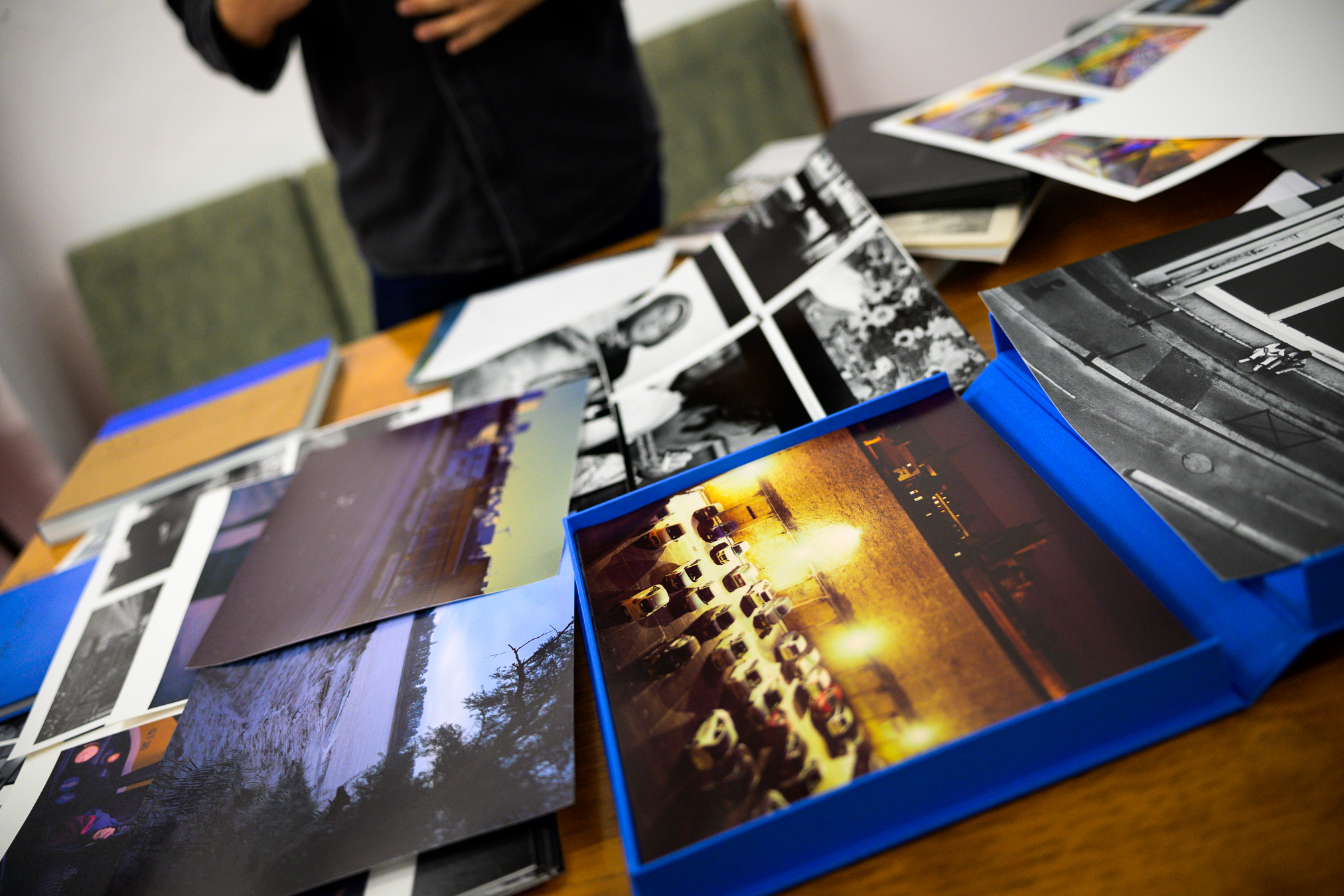
© Nuno Miguel Coelho
"Porto has an incredible scale"
Although born in Coimbra, having lived in the Netherlands, and spending seven years in Lisbon, André Cepeda has a deep connection with Porto, where he lived and worked. It was in Porto that he produced his three main books and where much of his artistic journey took shape. "Porto has an incredible scale," he says, explaining that the city has always inspired him. For him, Porto is a place where it is possible to create and find space to develop as an artist.
However, after a period in Lisbon, Cepeda feels he is still reestablishing his relationship with Porto. "Cities are always transforming, and Porto has changed a lot in recent years," he says, acknowledging that he is still absorbing the changes in the city since his return. Nevertheless, there is a clear affinity with Porto, a city that has always inspired him and where he feels at home. "The relationship with the urban space is almost like the relationship with a person: it must be built and nurtured over time."
Cepeda recognizes that "we are going through a time of great transition," both socially and culturally, and it is up to artists to record and interpret these changes. "This time we are living through must be recorded, it must be photographed," he states, emphasizing the importance of creating a visual record that will allow future generations to understand this era.
With a recently awarded grant from the La Caixa Foundation, Cepeda is preparing to travel and produce new works, further expanding his body of work.
Blues Photography Studio: Exhibitions at the studio
With the studio in full activity and new projects emerging, André Cepeda is already preparing for the next exhibition. His space on R. da Alegria continues to host carefully selected exhibitions, often by emerging artists who find here their first opportunity to showcase their work. "The first exhibition I organized here was by Ângelo de Sousa (1938-2011) because he lived here on R. da Alegria, a little further down; and from 1968 to 1972, he photographed people passing by from his window, a very interesting social perspective, almost anthropological, but also very conceptual at the same time, refined," he explains. It was because Ângelo de Sousa did a series titled "Os umanistas" that Cepeda decided to title the exhibition "Ângelo de Sousa: Umanist Photographs of R. da Alegria (1968-1972)." "Since I came here and knew that work, I decided to open the studio with that exhibition. It is symbolic, showing images of R. da Alegria at R. da Alegria."
The second exhibition organized by Cepeda was by artist Cristiana Ortiga, with whom he had previously worked, organizing her first exhibition less than two years ago. "We did the digitization, image editing, and printing," Cepeda explains, highlighting the role the studio plays in bringing these projects to fruition.
The next exhibition is already being planned and promises to continue bringing new perspectives on photography and contemporary art. For André Cepeda, the studio is not a traditional gallery but a space where images come to life, and where creative exchange with other artists is a constant. Information on the exhibitions can be found at blues.com.pt.
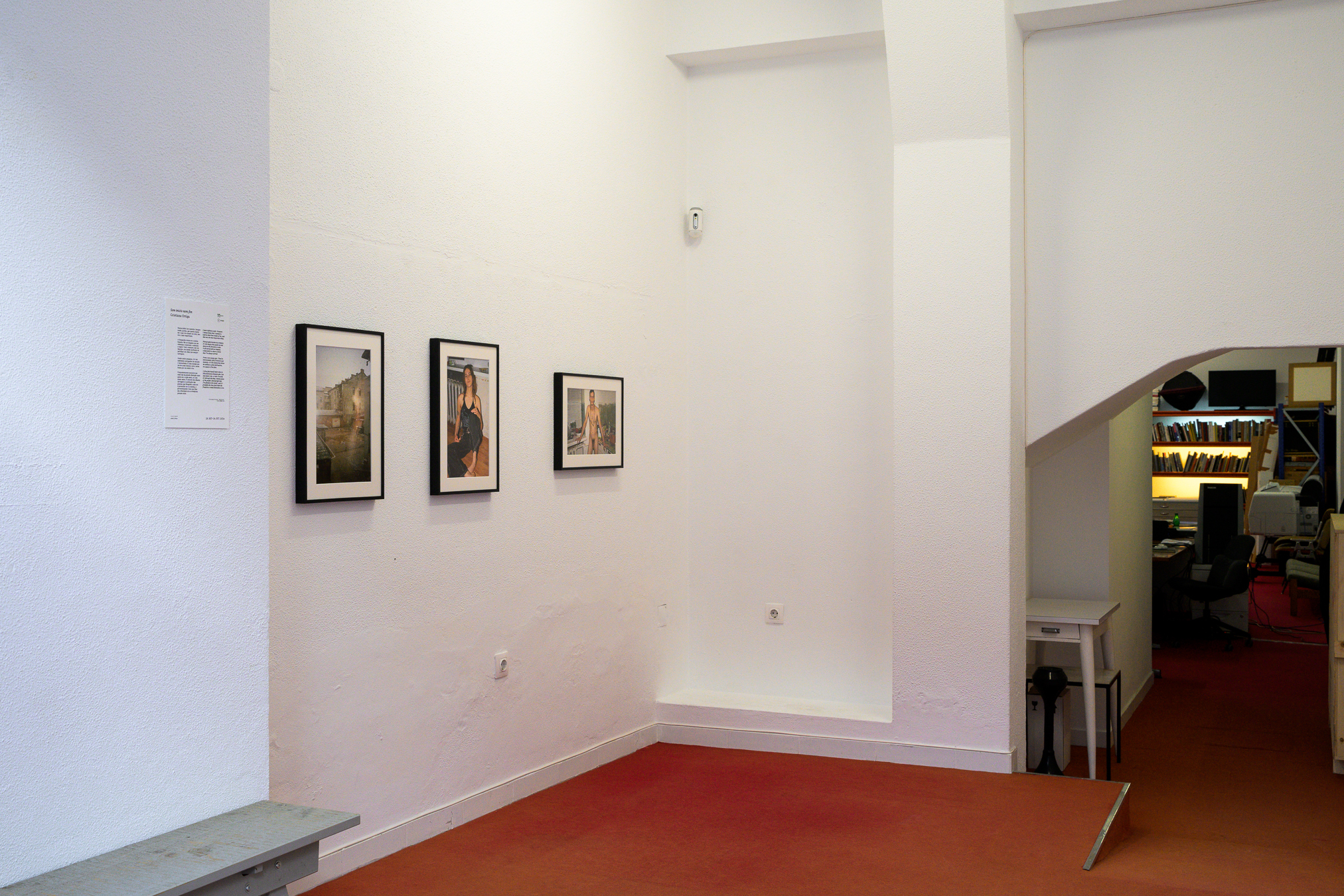
Blues Photography Studio © Nuno Miguel Coelho
By Maria Bastos
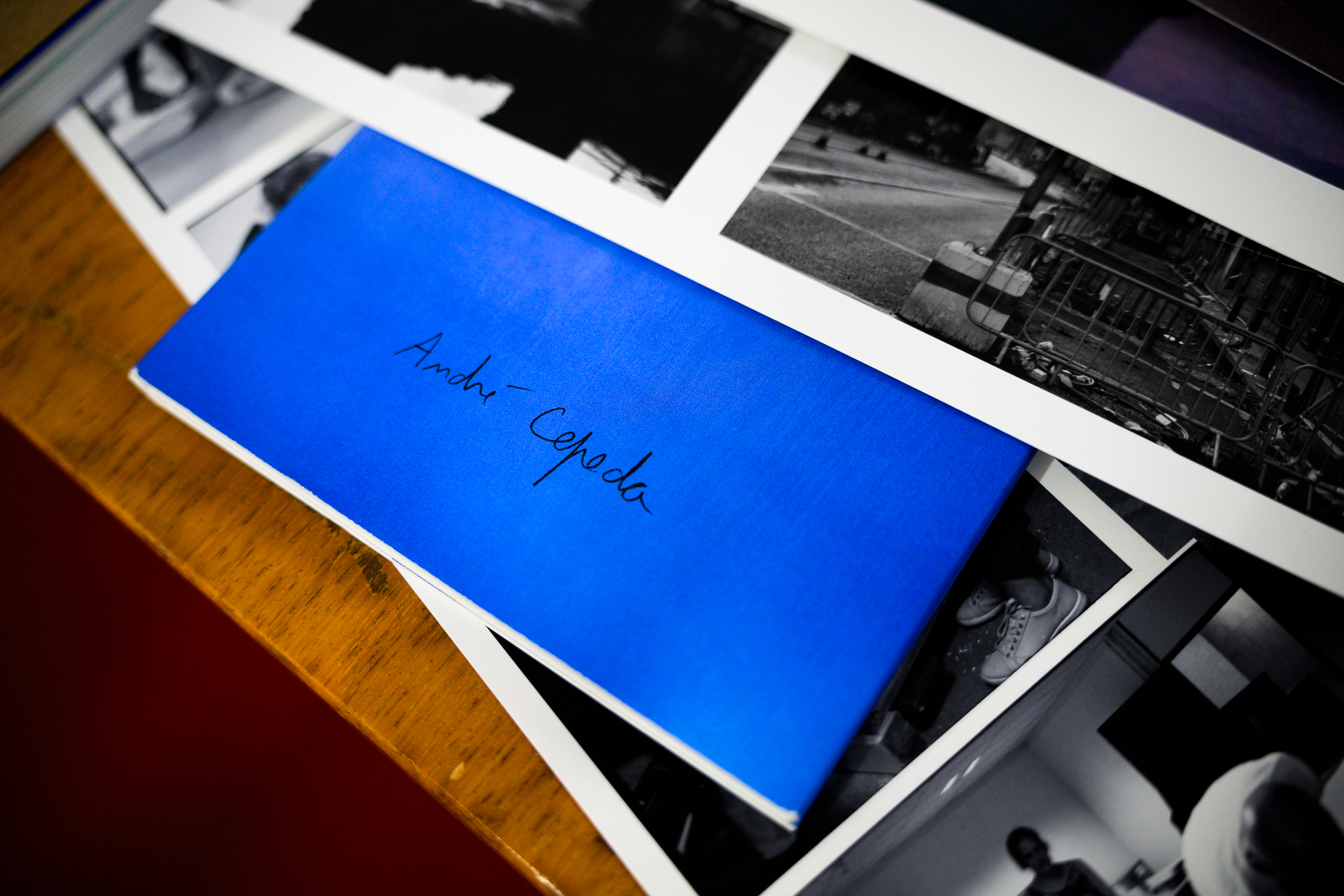
© Nuno Miguel Coelho
Share
FB
X
WA
LINK
Relacionados


